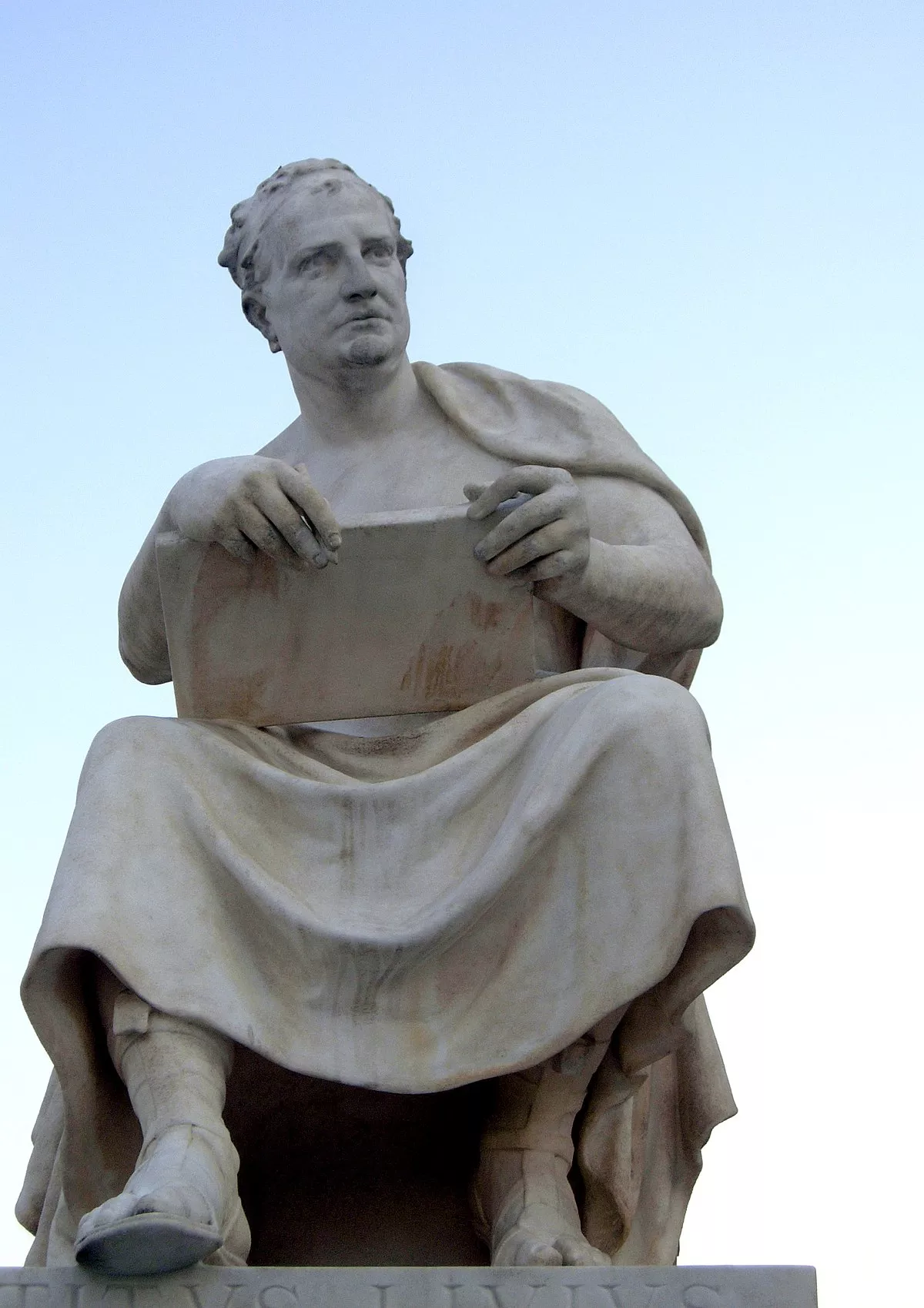 1.
1. Livy was born in Patavium in northern Italy, now modern Padua, probably in 59 BC.

 1.
1. Livy was born in Patavium in northern Italy, now modern Padua, probably in 59 BC.
Many years later, Asinius Pollio derisively commented on Livy's "patavinity", saying that Livy's Latin showed certain "provincialisms" frowned on at Rome.
Livy's writings contain elementary mistakes on military matters, indicating that he probably never served in the Roman army.
Livy devoted a large part of his life to his writings, which he was able to do because of his financial freedom.
Livy was known to give recitations to small audiences, but he was not heard of to engage in declamation, then a common pastime.
Suetonius described how Livy encouraged the future emperor Claudius, who was born in 10 BC, to write historiographical works during his childhood.
Livy was married and had at least one daughter and one son.
Livy produced other works, including an essay in the form of a letter to his son, and numerous dialogues, most likely modelled on similar works by Cicero.
Livy's only surviving work is commonly known as History of Rome.
Pliny the Younger reported that Livy's celebrity was so widespread, a man from Cadiz travelled to Rome and back for the sole purpose of meeting him.
Livy's work was a source for the later works of Aurelius Victor, Cassiodorus, Eutropius, Festus, Florus, Granius Licinianus and Orosius.
Julius Obsequens used Livy, or a source with access to Livy, to compose his De Prodigiis, an account of supernatural events in Rome from the consulship of Scipio and Laelius to that of Paulus Fabius and Quintus Aelius.
The Renaissance was a time of intense revival; the population discovered that Livy's work was being lost and large amounts of money changed hands in the rush to collect Livian manuscripts.
Dante speaks highly of him in his poetry, and Francis I of France commissioned extensive artwork treating Livian themes; Niccolo Machiavelli's work on republics, the Discourses on Livy, is presented as a commentary on the History of Rome.
The authority supplying information from which possible vital data on Livy can be deduced is Eusebius of Caesarea, a bishop of the early Christian Church.